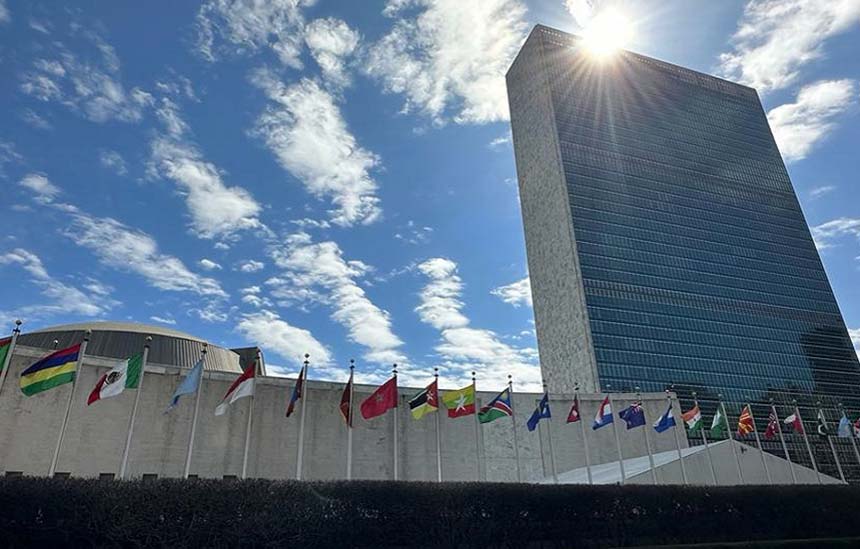I recently had the tremendous honor of presenting at the United Nations Water Conference in New York, the first of its kind in almost 50 years. With over 8,000 in attendance including water and climate leaders, government representatives, and non-profit organizations, I was deeply inspired by those passionate professionals around me to spark water action. Coming all the way from Singapore to speak at the most important global water event since 1977 brought on a range of emotions, but it truly was an incredible experience. With about 80% of wastewater being released into the environment without adequate treatment, this platform is key to showcase how dire the water scarcity situation is worldwide. At Gradiant, our focus has been how industry can reduce its water footprint, to speak to our patented technologies on this stage was a moment I will never forget.
On March 23rd and 24th, I was involved in discussions around Climate and Water Risk Technologies as well as Innovative Solutions for a Sustainable Blue Economy. As VP of Digital Solutions at Gradiant, my primary focus is on how our patented SmartOps Digital Solutions can optimize and sustainably treat industrial water & wastewater. By leveraging AI for predictive analytics, maintenance, and performance; the SmartOps platform, when used with our RO solutions, allows for the world’s leading brands to reduce and reuse more water. The U.N. invited many global business leaders to speak on how disruptive technologies can have a long-term effect on water scarcity. Every day, Gradiant saves about 3 million average households worth of water across 600 projects globally.
During my presentations, I spoke about the role of innovation and technology in making sustainable water actions as well as the need to catalyze industrial change, commitment, and investment. The Global Commission on the Economics of Water has predicted that by 2030, global water demand will exceed supply by 40%. Therefore, we need to act now to help companies leverage technology to reduce and reuse its wastewater in its industrial processes.
Today, AI and machine learning technologies are being leveraged to solve many water problems but we need to accelerate adoption to drive significant impact. It was encouraging to see industry stakeholders sharing their initiatives towards good water economics and stewardship. I also emphasized the importance of solving water problems with a collective action, as worldwide water challenges are connected to food, energy, climate, and more. To tackle these issues, it requires a global effort from all water-intensive industries.
The 2023 UN Water Conference has put water back on the center stage of the global agenda, hopefully a turning point in how we see this pivotal value stream. I left the conference feeling inspired by the collective action and commitment of everyone involved. Water is the most important resource we have as people, only by optimizing its use, leveraging technology, and being aware of its value, can we truly make sustainable changes in industries across the globe.

